Our work
EDRi is the biggest European network defending rights and freedoms online. We work to to challenge private and state actors who abuse their power to control or manipulate the public. We do so by advocating for robust and enforced laws, informing and mobilising people, promoting a healthy and accountable technology market, and building a movement of organisations and individuals committed to digital rights and freedoms in a connected world.
Filter resources
-

The new EU Commission must address information power
Ahead of the European Parliament elections, ARTICLE 19 shares its recommendations for the new European Commission, urging it to strive for a more open information environment across the EU.
Read more
-

La Quadrature du Net takes legal action against the French government’s censorship of TikTok in New Caledonia
Through an emergency proceeding (reféré-liberté) filed last week, La Quadrature du Net asked the Conseil d’État (Council of State) to suspend French Prime Minister Gabriel Attal’s decision to block the TikTok platform in New Caledonia. With this censorship order, the French government struck an unprecedented and particularly serious blow to freedom of expression online, which neither the local context nor the toxicity of the platform can justify in a regime pretending to abide by the rule of law.
Read more
-

Digital futures for all
In recent years, protecting and advancing digital rights feels like a never-ending battle as more and more of our lives get entangled with the digital world. Challenges to our freedoms online and offline continue to pile up as we face tech corporations with ginormous budgets and states with carte blanche to do anything for ‘national security’ reasons.
Read more
-
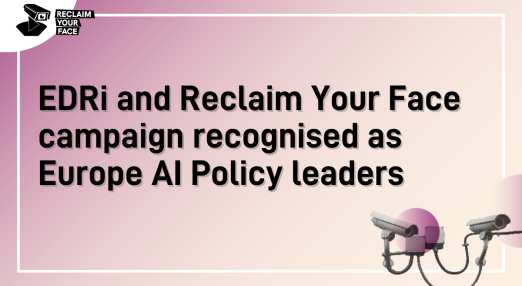
EDRi and Reclaim Your Face campaign recognised as Europe AI Policy leaders
EDRi and the Reclaim Your Face coalition were recognised as the Europe AI Policy Leader in Civil Society for our groundbreaking work as a coalition to advocate for a world free from biometric mass surveillance.
Read more
-

How to fight Biometric Mass Surveillance after the AI Act: A legal and practical guide
The EU's Artificial Intelligence Act has been adopted, laying out an in-principle ban on live mass facial recognition and other public biometric surveillance by police. Yet the wide exceptions to this ban may pave the way to legitimise the use of these systems. This living guide, for civil society organisations, communities and activists, charts a human rights-based approach for how to keep resisting biometric mass surveillance practices now and in the future
Read more
-

It’s time for a heart-to-heart about the EU’s surveillance agenda
The EU prides itself on its worldwide norm-setting influence in the fields of data protection and artificial intelligence regulation. Still, it is not always for the best when it comes to digital state surveillance. Privacy is safety. As we approach the European elections in June, it’s time to discuss the EU's role in shaping how technologies are developed and used.
Read more
-

Position paper: GDPR enforcement done right
There is an urgent need to enhance legal certainty and prevent actions that undermine the effectiveness of and trust in GDPR enforcement. EDRi and Access Now have co-drafted a position paper on the EU Proposal for additional procedural rules concerning the General Data Protection Regulation (GDPR).
Read more
-
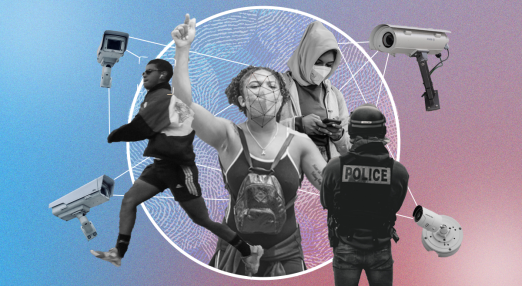
Resist Europol Document Pool
This document pool gathers all the relevant documentation regarding Europol’s powers and legislative reforms, critical analysis and research as well as tools for action.
Read more
-

EDRi-gram, 2 May 2024
Last week, the European Parliament was doing everything everywhere all at once in the run up to the final plenary before the June EU elections. Let’s run through some of the highlights. In a disappointing move that will endanger medical secrecy, the European Parliament passed the European Health Data Space (EHDS). This law will expose everyone’s medical records to unnecessary security and privacy risks in the name of research and “innovation”. The Parliament also took its final step on the much touted Artificial Intelligence (AI) Act last week. With the final version of the law full of loopholes and missed opportunties, we’re left to contend with how to keep advocating for the protection of peope’s rights and fight against biometric mass surveillance. We also directed our attention towards the European Commission’s concerning decision to allow unrestricted data flows to Israel. Together with Access Now and 11 other civil society groups, we wrote to the Commission to ask for clarity on this decision.
Read more
-
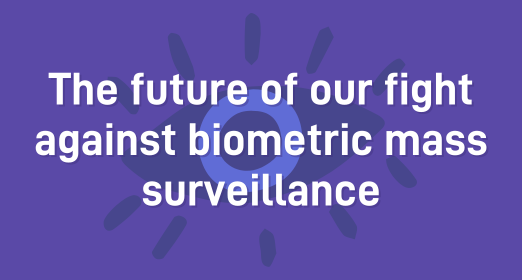
The future of our fight against biometric mass surveillance
The final AI Act is disappointingly full of holes when it comes to bans on different forms of biometric mass surveillance (BMS). Despite this, there are some silver linings in the form of opportunities to oppose BMS in public spaces and to push for better protection of people’s sensitive biometric data.
Read more
-
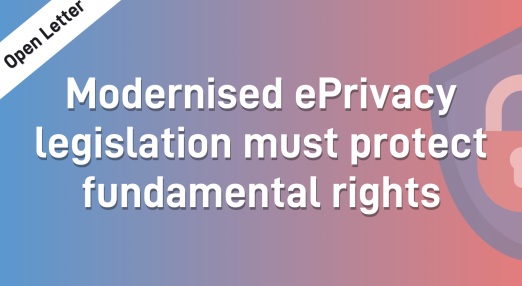
Open letter: Modernised ePrivacy legislation must protect fundamental rights
Today, 24 April, EDRi and 13 organisations call for robust legislation to complement and particularise the General Data Protection Regulation (GDPR), and call upon the next European Commission to include comprehensive plans for reforming the European Union’s ePrivacy legislation.
Read more
-
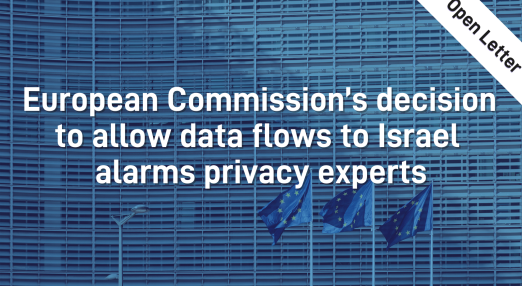
Open letter: European Commission’s decision to allow data flows to Israel alarms privacy experts
Today, 22 April, EDRi and Access Now coordinated an open letter supported by 11 civil society organisations that calls on the European Commissioner for Justice to provide further evidence and clarity on the decision to renew Israel’s status in the adequacy review.
Read more
